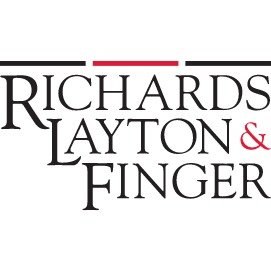Best New Business Formation Lawyers in Wilmington
Share your needs with us, get contacted by law firms.
Free. Takes 2 min.
List of the best lawyers in Wilmington, United States
About New Business Formation Law in Wilmington, United States
In Wilmington, the law surrounding new business formation serves to formalize a new company's mission, ownership, and operating procedures. This process is crucial for protecting owners against liabilities, securing tax benefits, and establishing a professional identity. New business formation law in Wilmington covers several types of businesses including Sole Proprietorships, Partneships, Limited Liability Companies (LLC), Corporations, and Nonprofit Organizations.
Why You May Need a Lawyer
The process of forming a new business in Wilmington involves filing necessary paperwork, understanding tax obligations, and sorting through legal technicalities. A misstep in any of these areas could mean fines, potential lawsuits, or non-compliance with state legislation. Thus, you may need a lawyer to guide you through the legal framework, explaining your obligations, rights, and options in straightforward terms.
Local Laws Overview
A fundamental aspect of new business formation in Wilmington involves registering your new business with the Delaware Division of Corporations. New entities will often require an assigned EIN (Employer Identification Number) from the IRS for tax purposes. Depending on your business, you may also need permits or licenses to legally operate. Wilmington also has zoning laws that dictate where businesses can be located. An attorney can provide advice on these and other regulations to ensure legal compliance.
Frequently Asked Questions
1. What type of business entity should I form?
This decision depends on your specific circumstances and intended business operations. An attorney can help you make an informed decision, based on factors such as liability concerns, taxation, and your long-term business goals.
2. How do I register my business name?
New businesses must register their business name with the Delaware Department of State Division of Corporations. The name must be unique and cannot be identical or too similar to an existing business name in Delaware.
3. Do I need a business license?
Most businesses in Wilmington need a business license to operate. The requirements can vary, and a lawyer can help you understand and fulfill these obligations.
4. How do I understand my business tax obligations?
The type of business you form will determine your business tax obligations. A lawyer can offer advice on tax registration, record keeping and deductions, and can help to navigate tax expectations on a state and federal level.
5. What are my ongoing legal obligations after my business is formed?
Your ongoing legal responsibilities will depend on your type of business entity. These may include filing annual reports, paying business taxes, renewing licenses and permits, and maintaining your registered agent service.
Additional Resources
You may find resources such as The Wilmington Chamber of Commerce, Small business Development Center of Delaware, and the Delaware Division of Corporations beneficial. They offer guidance, resources, and assistance with understanding local business laws and driving growth for your business.
Next Steps
If you need assistance with new business formation in Wilmington, start by seeking advice from a business formation lawyer who is familiar with Delaware business laws. Prepare a list of your questions and concerns to discuss during your initial consultation. They can guide you through the entire formation process, help you understand your responsibilities and protect you from potential legal issues down the line.
Lawzana helps you find the best lawyers and law firms in Wilmington through a curated and pre-screened list of qualified legal professionals. Our platform offers rankings and detailed profiles of attorneys and law firms, allowing you to compare based on practice areas, including New Business Formation, experience, and client feedback.
Each profile includes a description of the firm's areas of practice, client reviews, team members and partners, year of establishment, spoken languages, office locations, contact information, social media presence, and any published articles or resources. Most firms on our platform speak English and are experienced in both local and international legal matters.
Get a quote from top-rated law firms in Wilmington, United States — quickly, securely, and without unnecessary hassle.
Disclaimer:
The information provided on this page is for general informational purposes only and does not constitute legal advice. While we strive to ensure the accuracy and relevance of the content, legal information may change over time, and interpretations of the law can vary. You should always consult with a qualified legal professional for advice specific to your situation.
We disclaim all liability for actions taken or not taken based on the content of this page. If you believe any information is incorrect or outdated, please contact us, and we will review and update it where appropriate.












